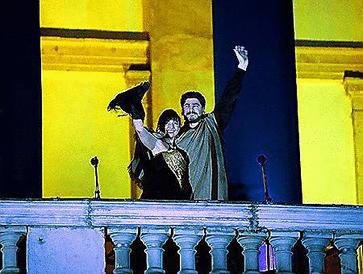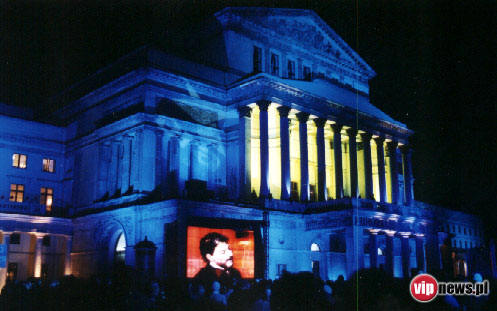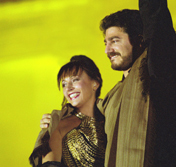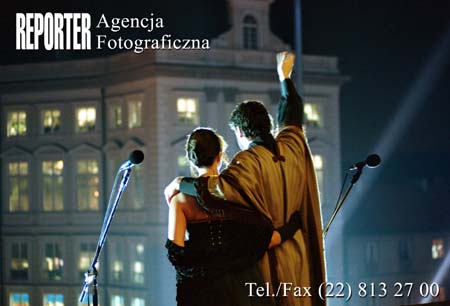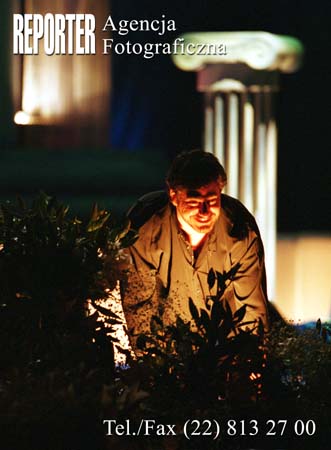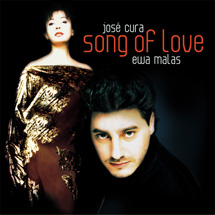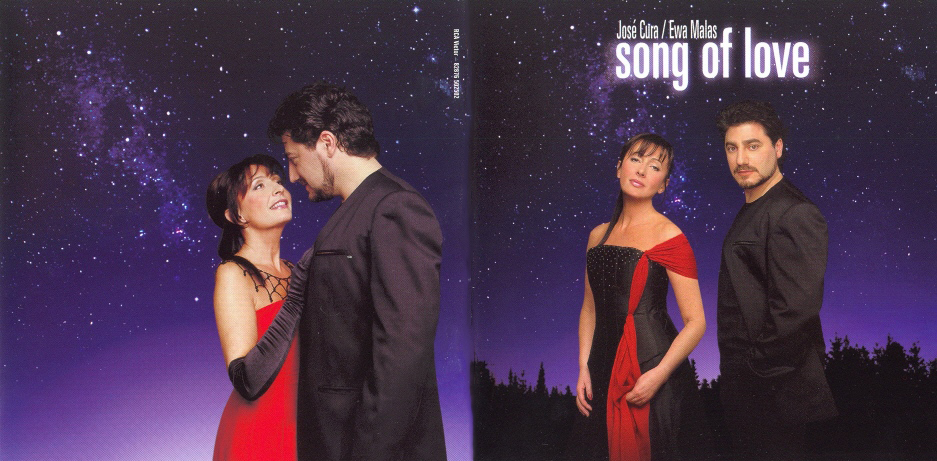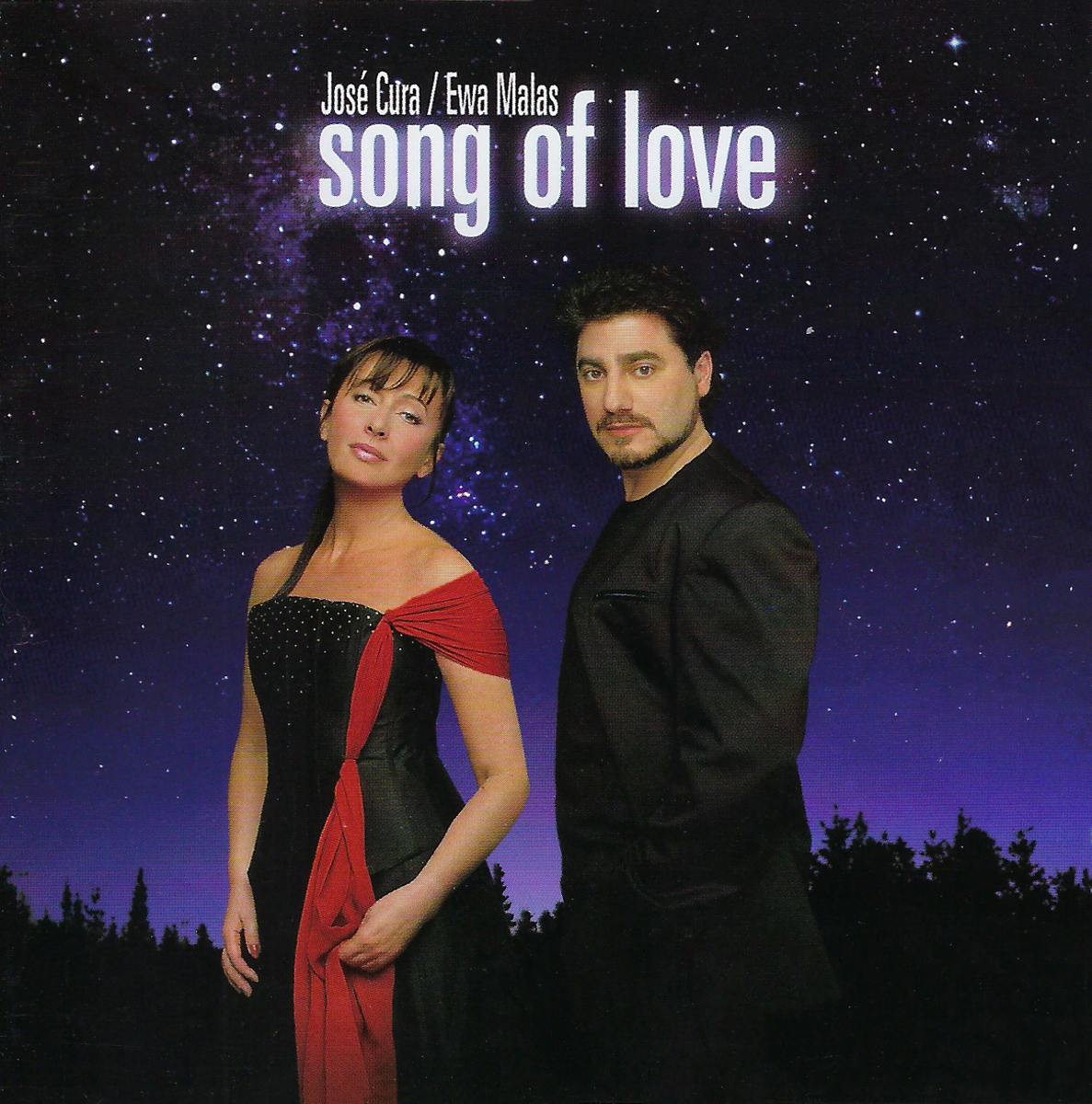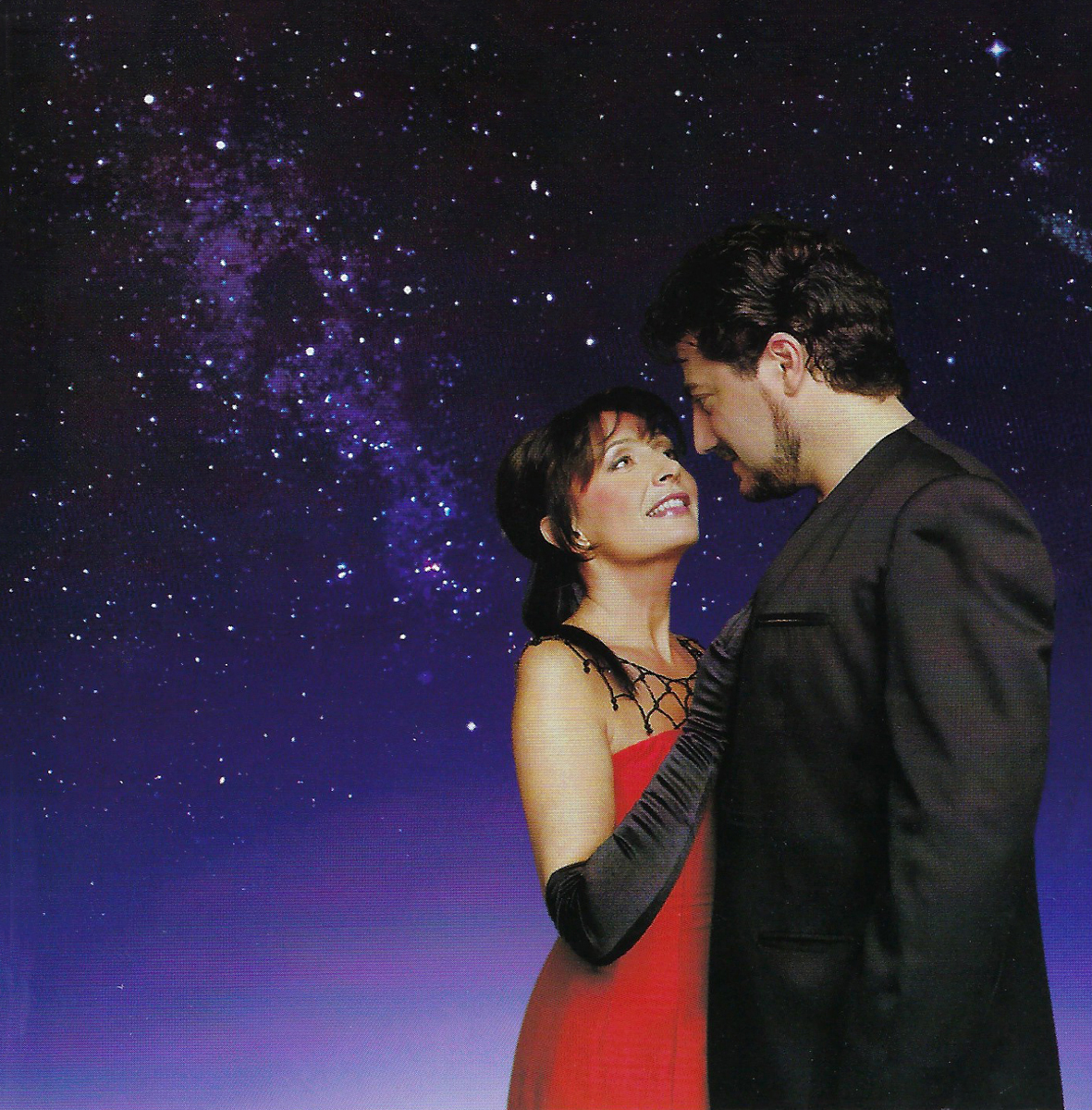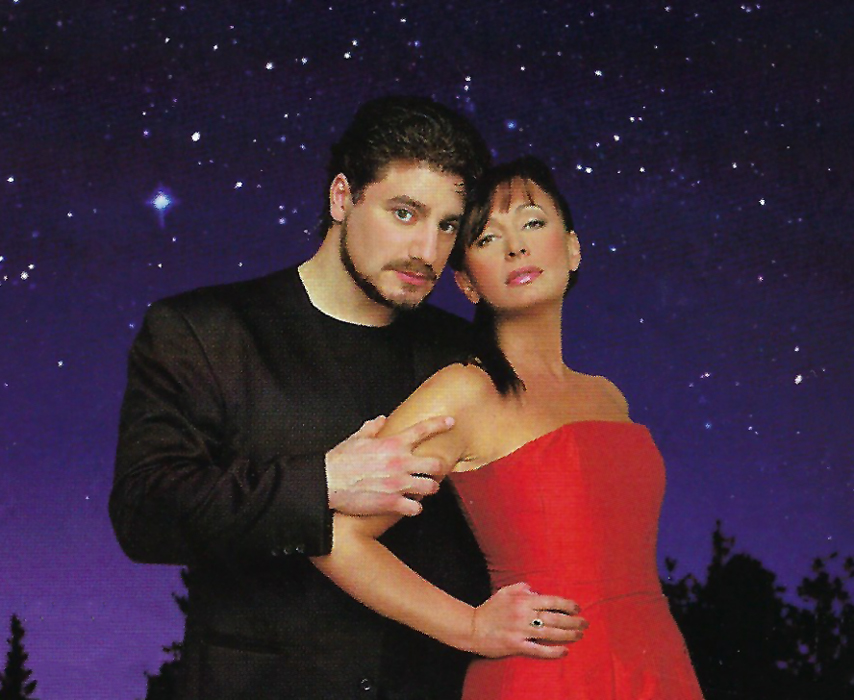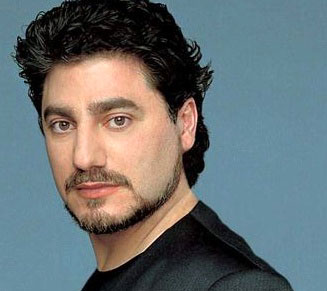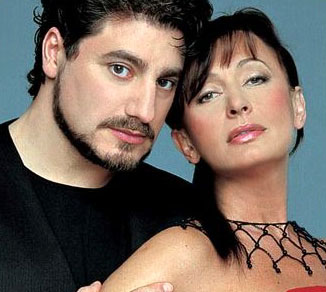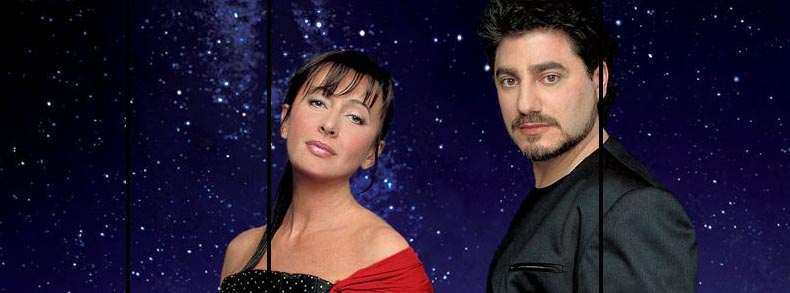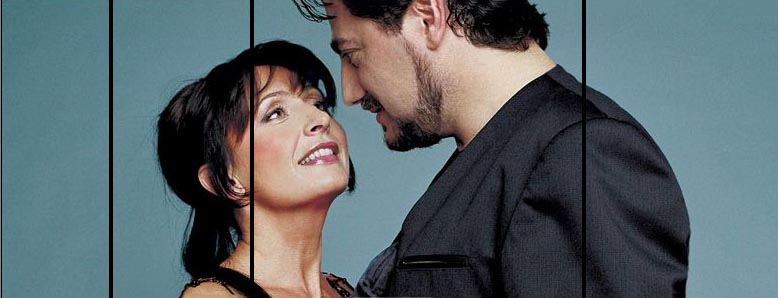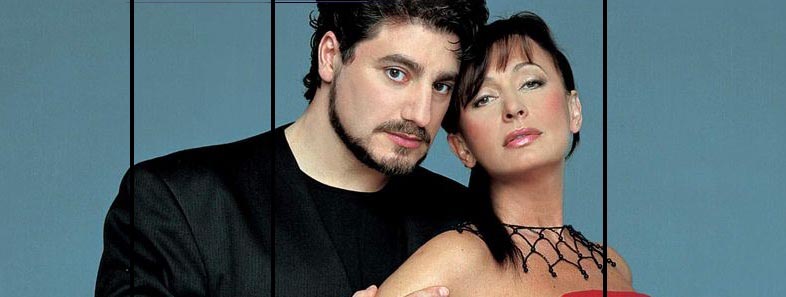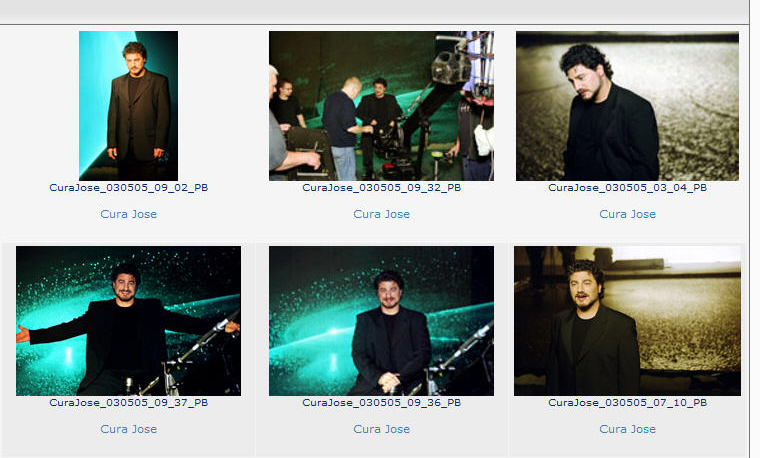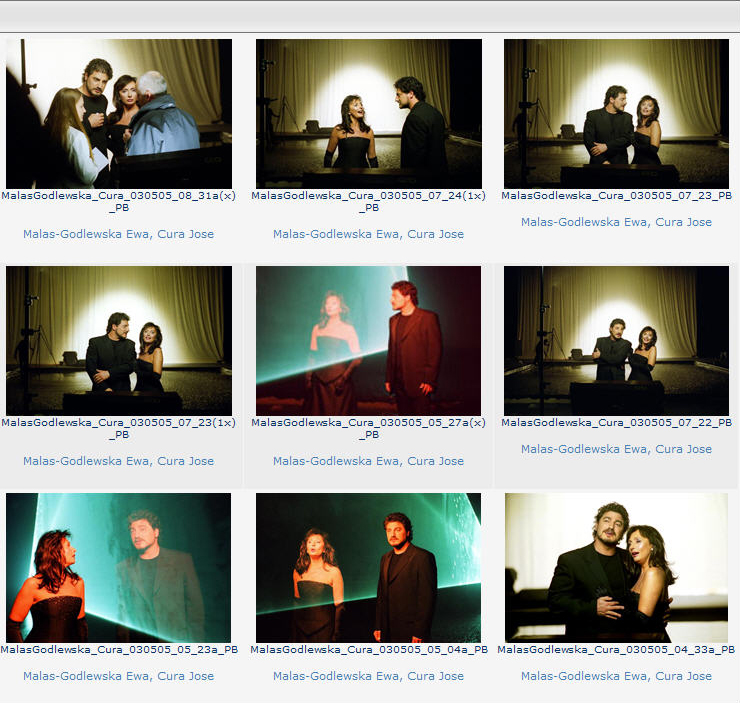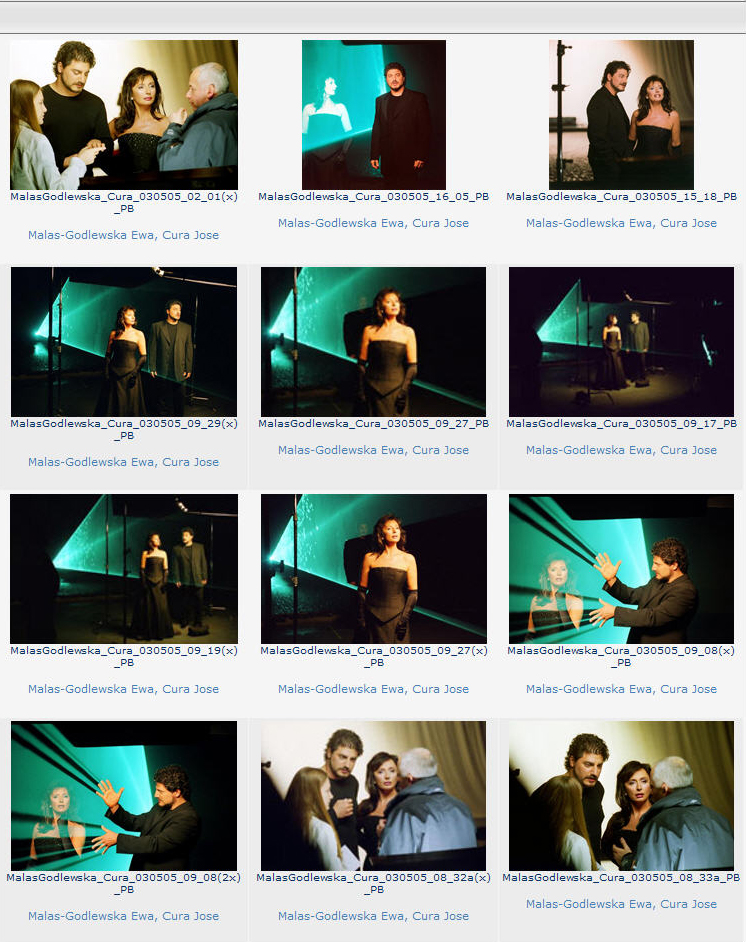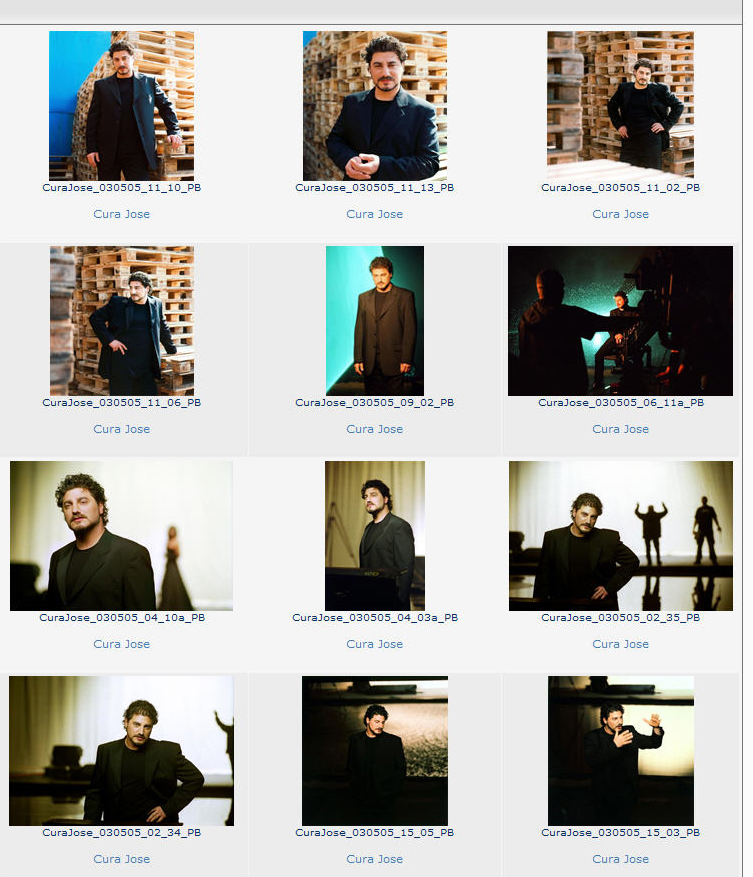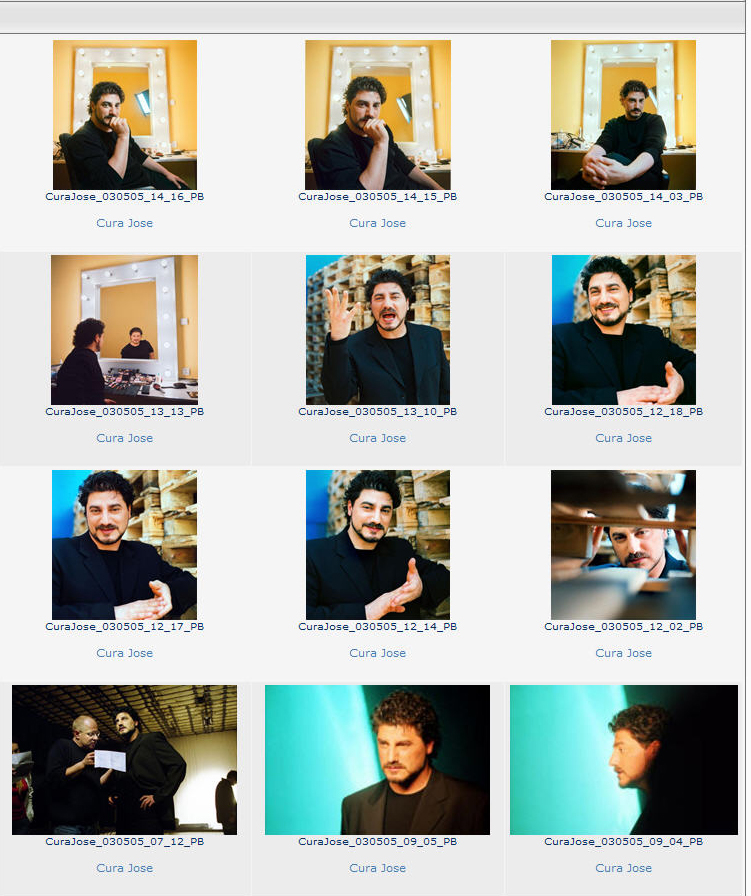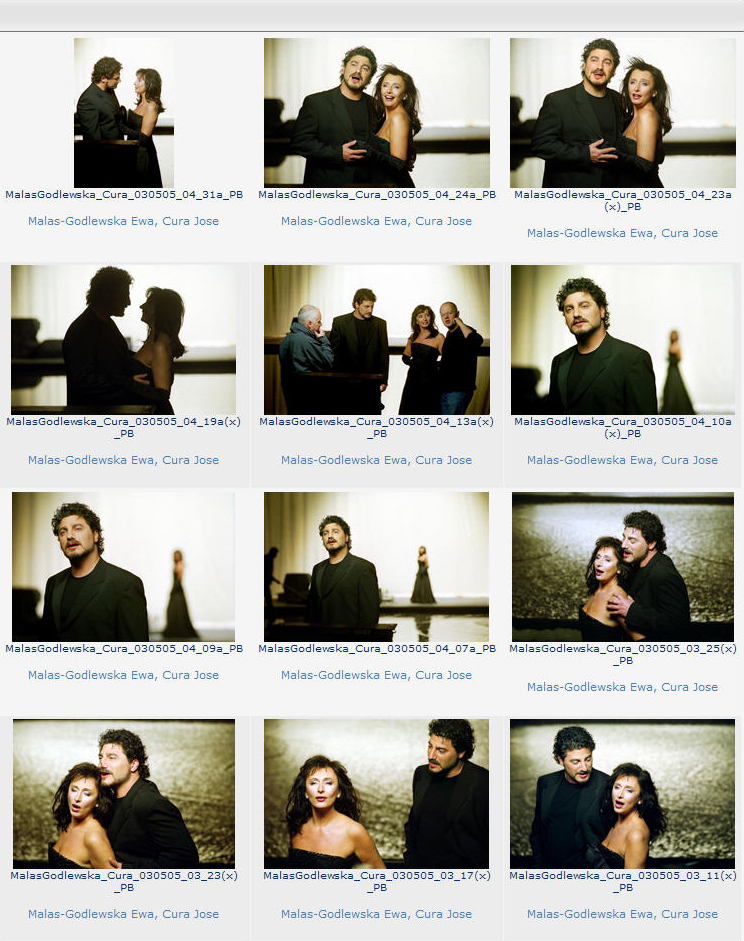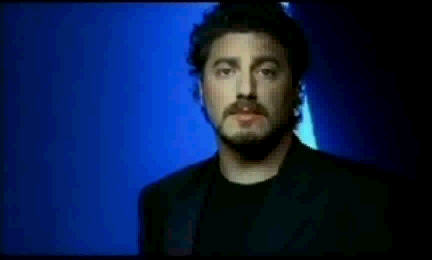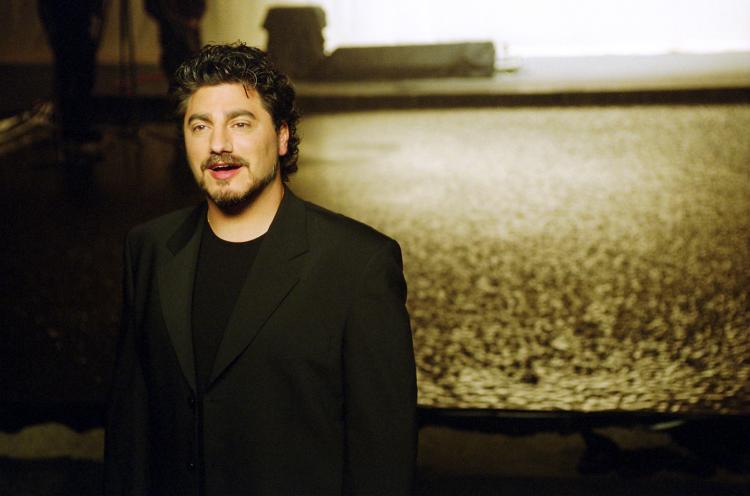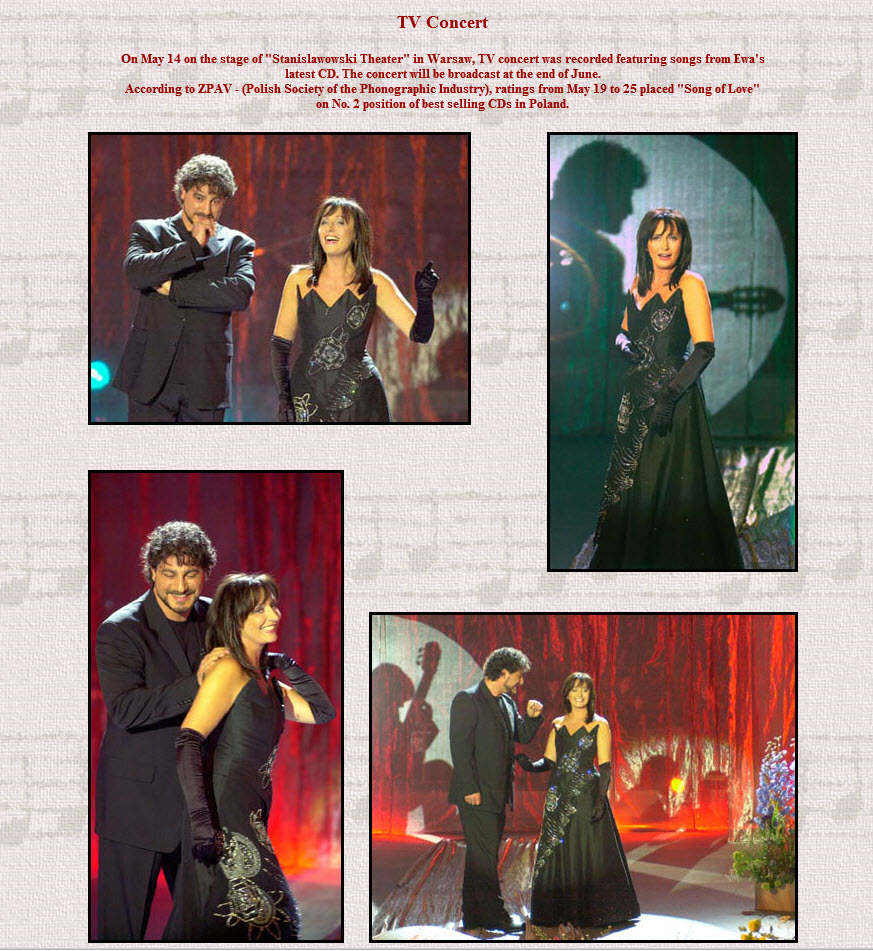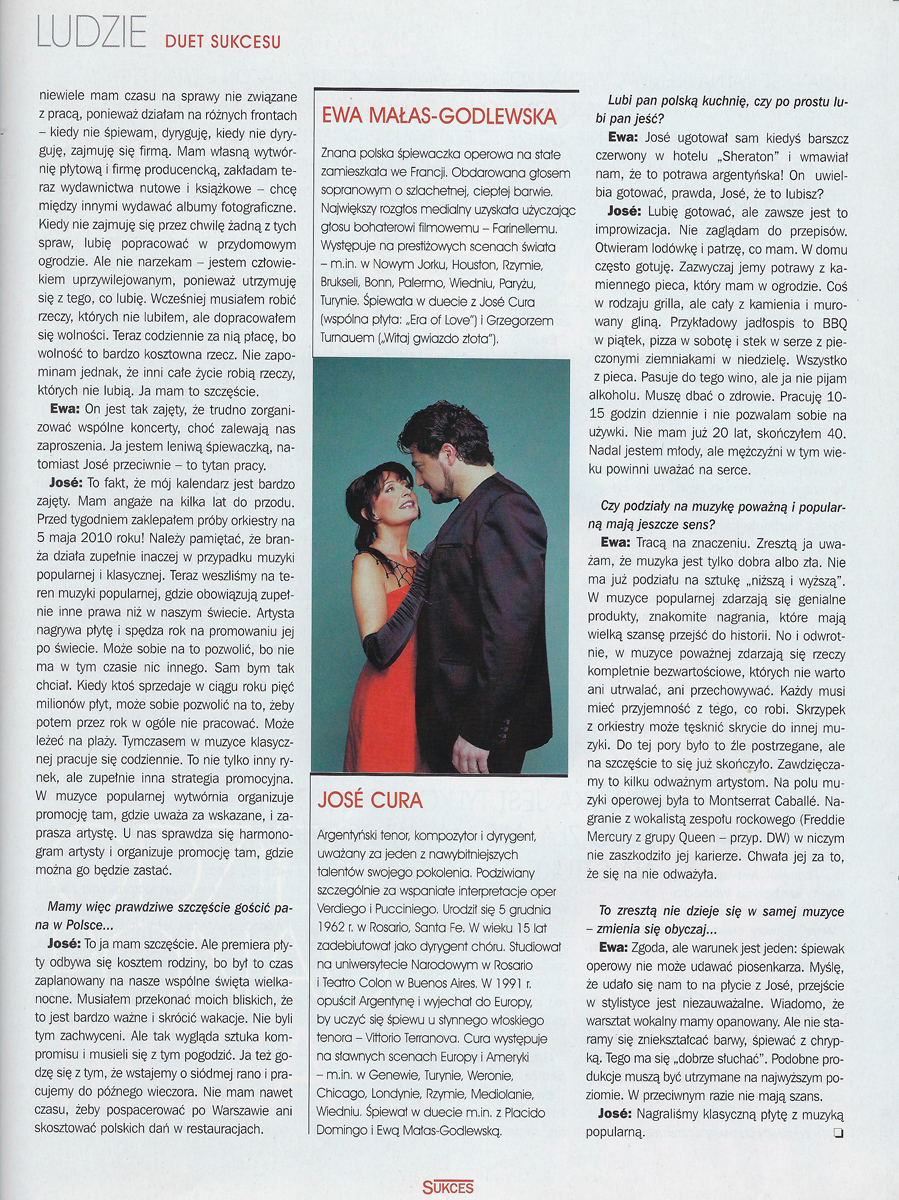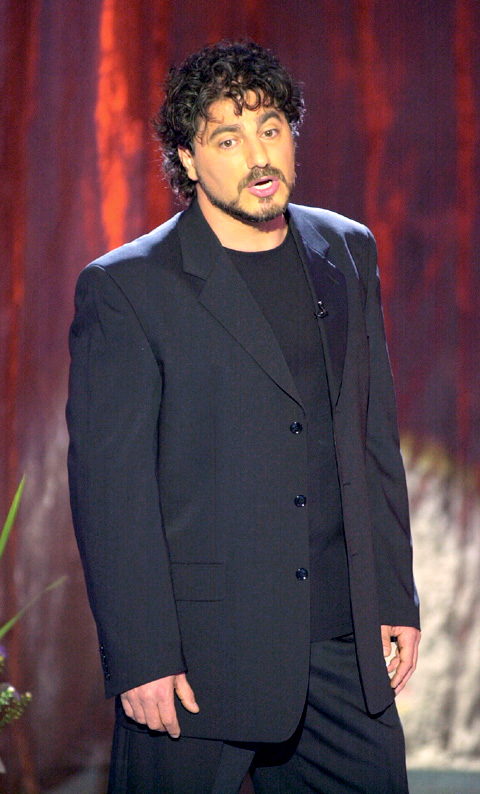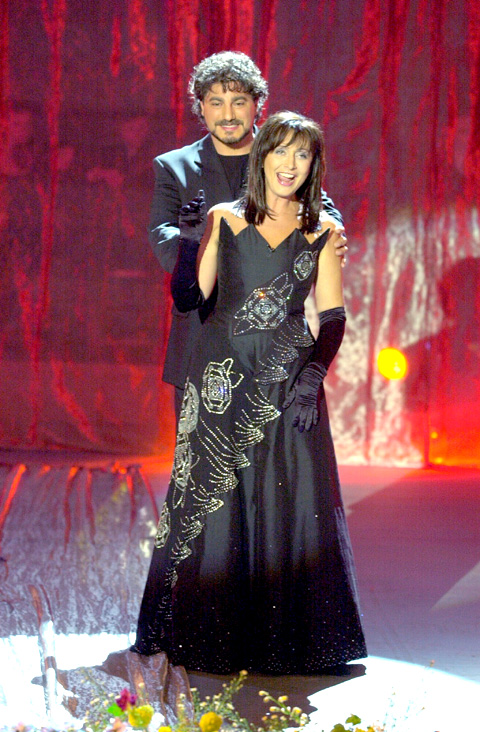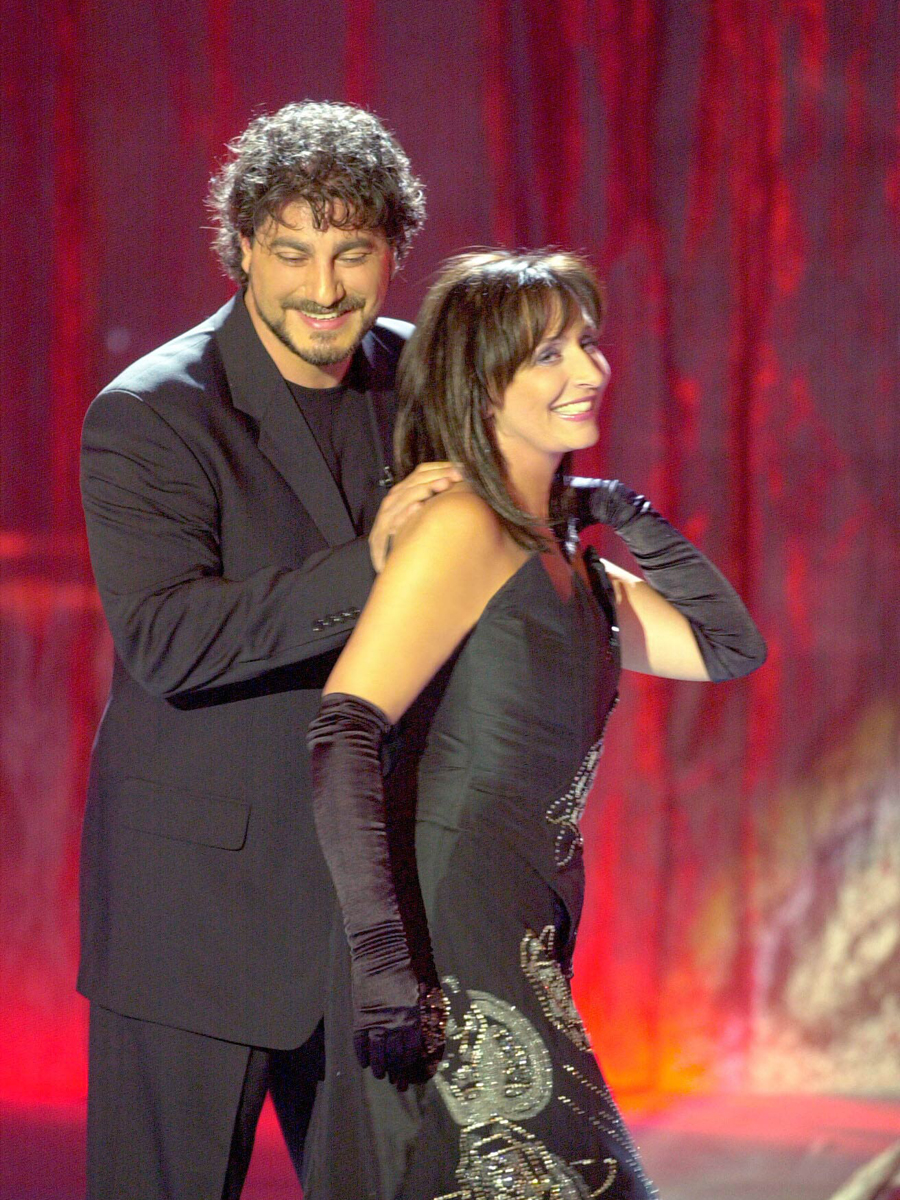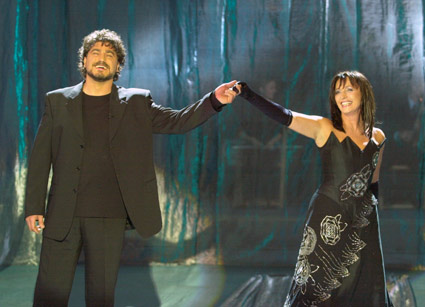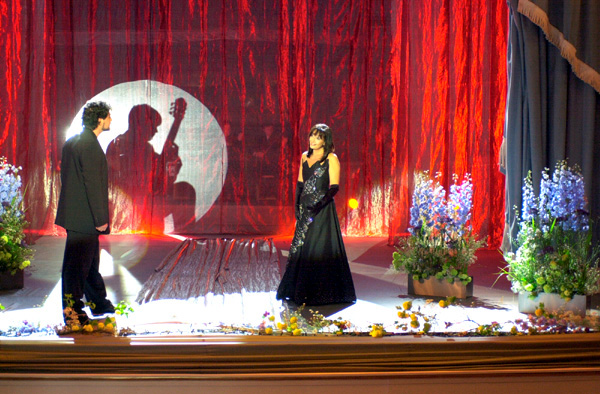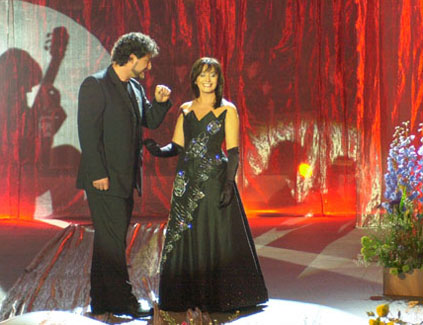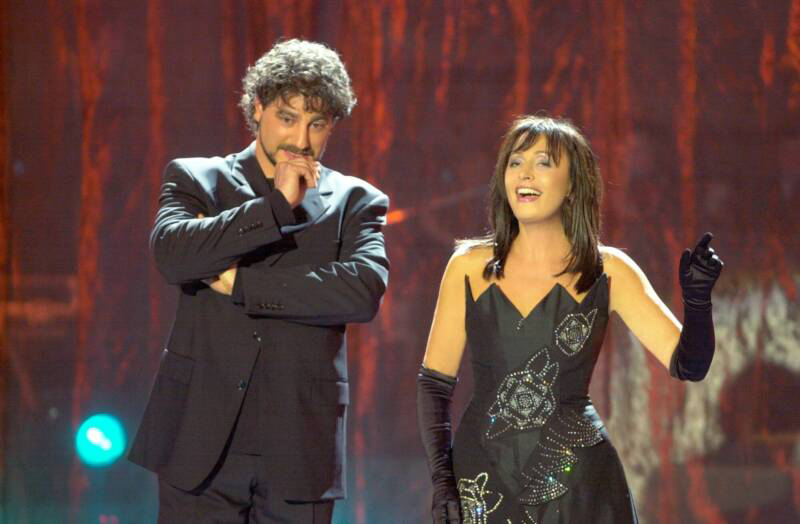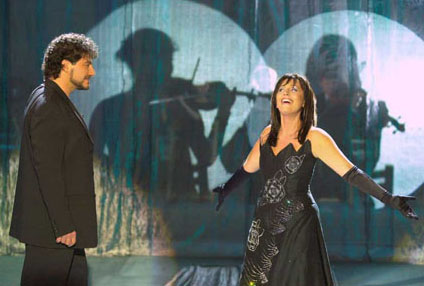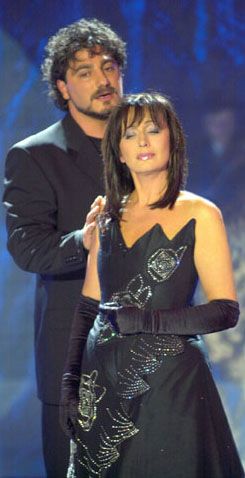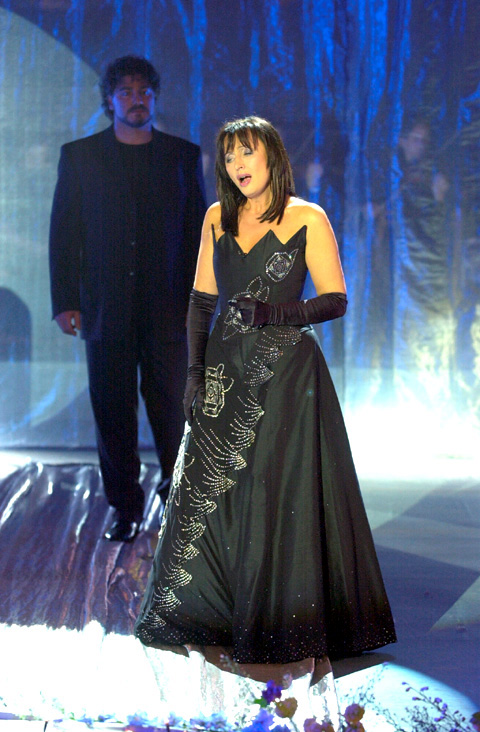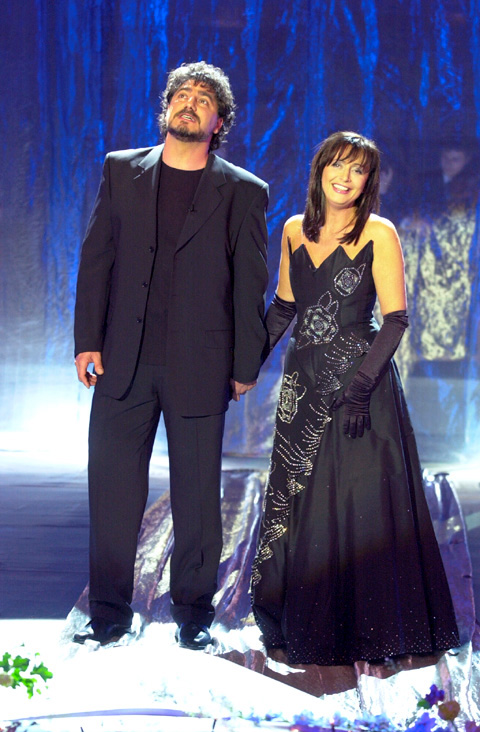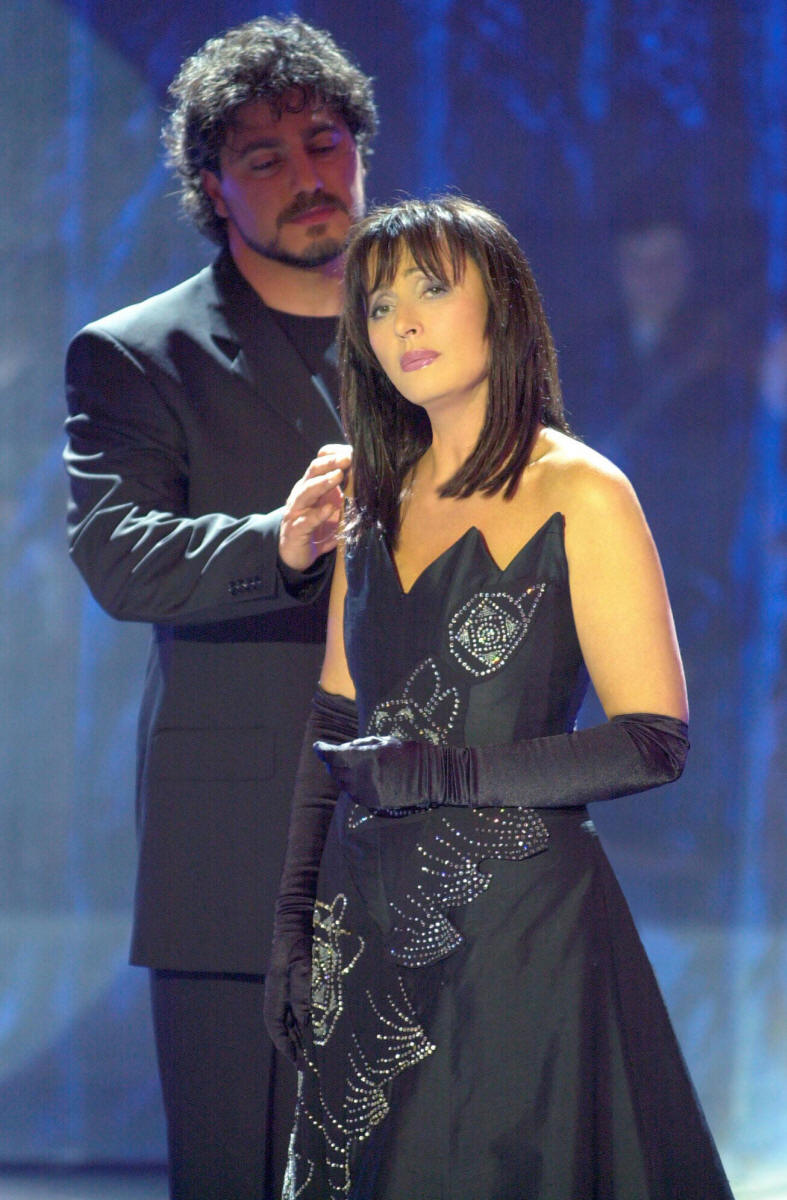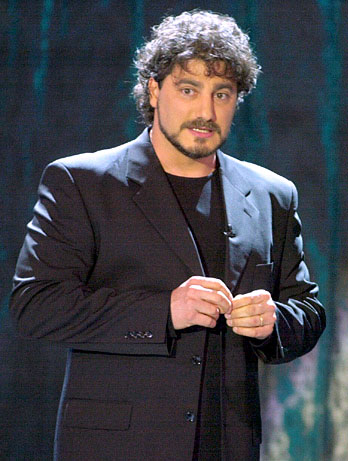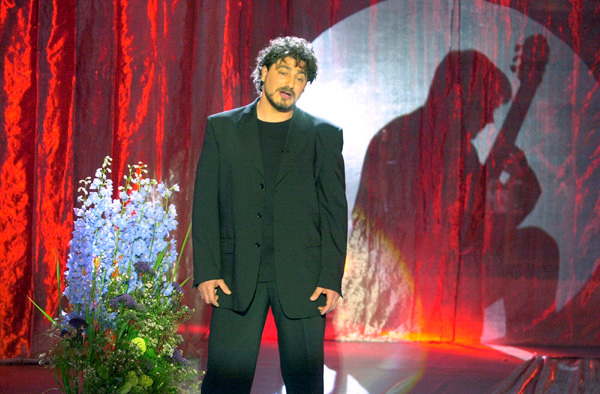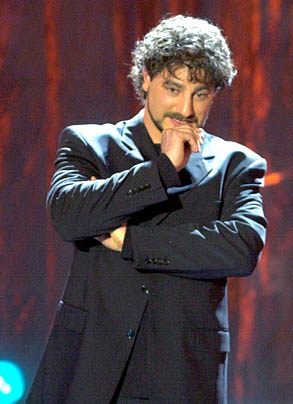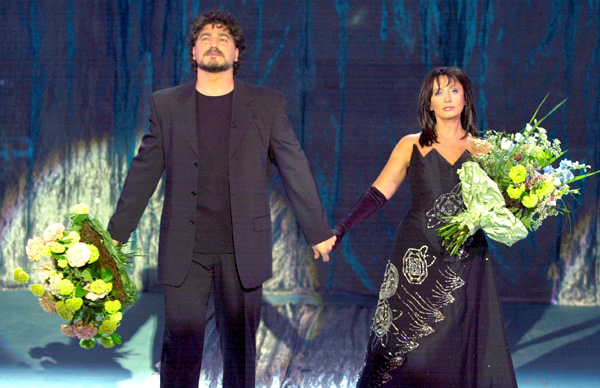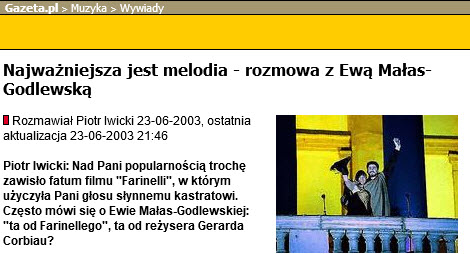Era of Love -- 2000
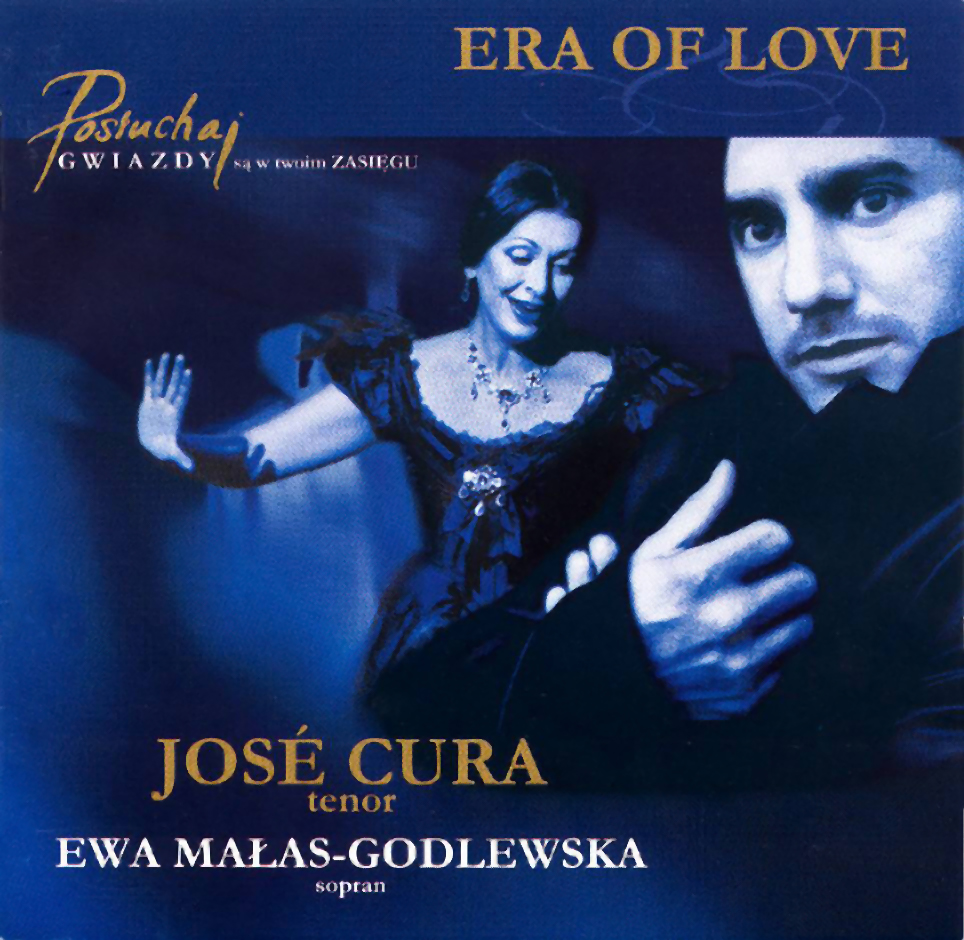 |
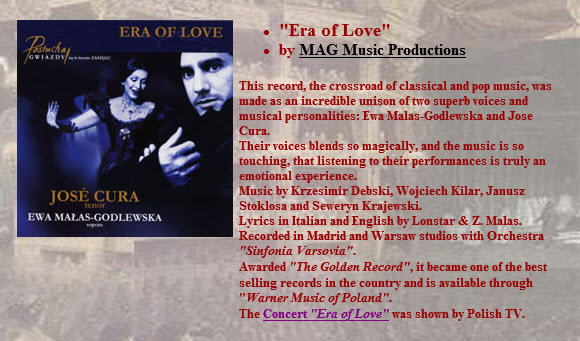
|
Label - MAG
Catalogue No. - 85738 56022
Sinfornia Varsovia conducted by Krzesimira Debskiego
Recorded 2000 in Madrid and Warsaw
Released 2000
Performers: José Cura and Ewa Malas-Godlewska
This CD was produced and distributed in Poland.
It was awarded "The Golden Record" and became one of the biggest selling albums in the country.
A one hour broadcast of songs from this album (and opera arias) was televised in November. Over ten thousand fans waited outside the broadcast venue to watch the live telecast on huge outdoor screens and to cheer Mr Cura and Ms Malas-Godlewska.
|
|
|
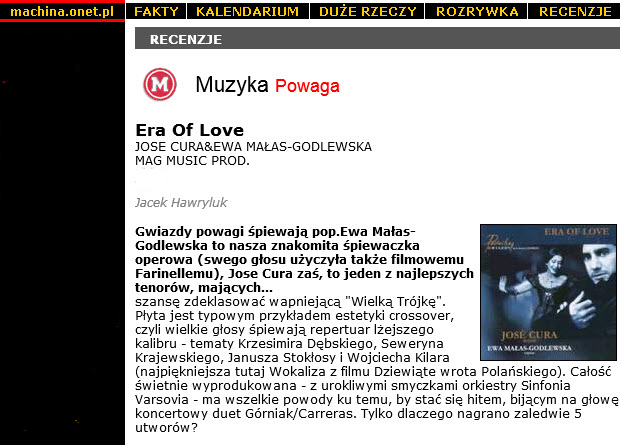 |
|
|
Note: This is a machine-based translation. We offer it only a a general guide but it should not be considered definitive.
From the record company:
|
|
|
|
|
|
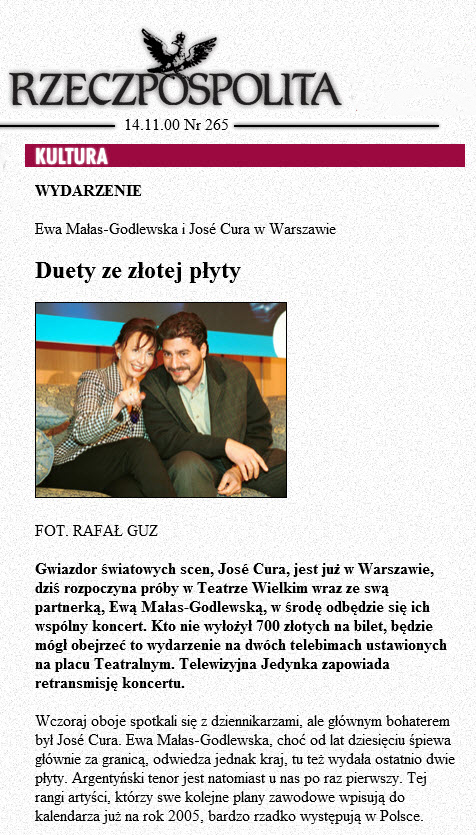 |
Note: This is a machine-based translation. We offer
it only a a general guide but it should not
be considered definitive.
|
Era Concert, Warsaw, 2000
|
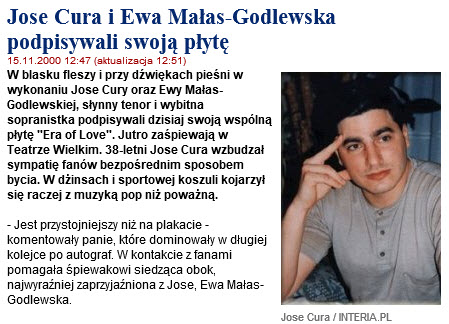 |
|
|
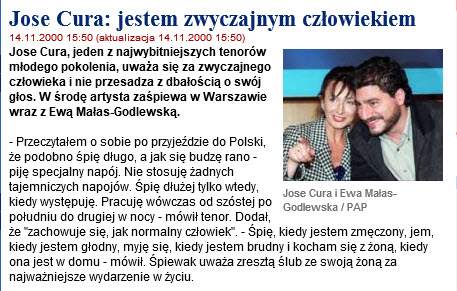 |
|
|
Note: This is a machine-based translation. We offer it only a a general guide but it should not be considered definitive.
Mozart, Schubert and Schumann were pop artists of their eras Cura appeals to audience's feelings Wprost Jolanta Fajkowska 13 November 2000.
Jolanta Fajkowska:-What music do you listen to when you return from a concert or show? José Cura: Silence. It's the best music. - Is that because you are already bored with opera? JC: Not at all, but it’s my job. I treat it like any other occupation. I work fourteen, fifteen hours a day and so when I get home I need silence. As a boy, I loved Beatle songs, spirituals, jazz, but no arias. -It’s reported that you dreamed of a career in rugby… JC: In Argentina, where I come from, rugby is not a professional sport, so it would be difficult to make a living from it. I played rugby and if I had continued training, I would probably have made the national team. But the singing turned out to be more important. I was also a body builder—twenty kilos ago--and practiced yoga. But in the evenings, only theater mattered. -Are sports experiences useful on stage? JC: I know how to control my body. Sport teaches you to move in the right way. Thanks to that, I can sing in any position, for example lying, which is extremely difficult for an opera singer. Then too, sometime the costume can be heavy but thanks to muscle training, I don’t feel the weight. - Even though you haven’t studied acting, you are considered one of the best actors in opera. You know how to appeal to an audience… JC: In coming to the performance, the audience comes to be seduced. They need to know that the actor, the singer, the performer, is thinking about them. Some people reproach me for covering vocal weaknesses with charisma. That may be true, but if I can make contact with and move the audience I don’t have to be a perfect singer. -So what does the audience admire in your interpretations? JC: Perhaps they admire my ability to play a character in a realistic way. I know how to show joy, suffering, love. Singing is just one of the elements of being on stage. -You are known for unconventional behaviors: You release paper planes during a performance, singing while lying down... JC: Each of us makes jokes. I am also sometime their victim. In the last act of "Fedora" I read a letter from which I learn about the death of my mother. The messenger brings in the envelope, I open it ... inside is a picture of a naked woman. Imagine: two thousand people are listening and looking, my partner is sobbing in the corner of the stage, and I am supposed to read and sing with a photo of a beautiful naked woman in my hand. I folded the paper and sang the letter from memory, which was unbelievable, but how was I supposed to behave? I never found out who had played this trick on me. - You’ve released a disc on which you sing under the baton of Placido Domingo, who has called you his successor. JC: Placido is a brilliant singer, a great musician and a good conductor who understands how the soloist and orchestra work together like no one else. His movements are not as perfect as those of a professional conductor, but he knows what the singer is experiencing on stage. It is a pleasure working with him, and the fact that he recognized me as his successor is an honor. -Recently, the whole world watched by Verdi's "La traviata ," broadcast by live TV to 125 countries. It must have been a great challenge. JC: Playing Alfredo was very exciting for me. On stage, you see the faces of the audience. When you turn your back to the audience, they can’t hear what you sing. When you stand in front of a TV camera, you have to use your entire body. The cameras record everything. This was a real live broadcast. Billions of people watched the result of one and a half months of rehearsals, sometimes lasting fifteen hours a day. We were exhausted on the day of the broadcast. Thank God there is a make-up, because without it we looked terrible. The beginning of the fourth act was very dark. That was evidence that everything was live. -I thought it was the intended effect of the great cinematographer Vittoria Storaro... JC: One of the lamps illuminating the stage broke at the beginning of the act. We couldn't stop the show to fix it. We sang in darkness. Storaro waited until I started crying in a close-up, then he crawled like a soldier to the lamp, changed it and only from that point on was there proper lighting. Imagine: I’m crying and out of the corner of my eye I can see someone crawling past me to repair the light. When you are recording a program or a movie, you can take breaks. Everyone laughs, drinks coffee and then continues working. Here everything was live. We couldn’t do that. -Why do you so often shock the audience with unconventional clothing? JC: I hate dress-coats and bow tie. It seems to me that this sort of outfit discourages young people from coming to classical music and I want to prove that the classics can be captivating. So sometimes I start my recitals dressed in black time, then I finish in jeans and a shirt. The older folks are uncomfortable but younger audiences like it. Many of them tell me that they always wait for my concerts because they know that something will happen. On the other hand, let’s not forget that such composers as Mozart, Schubert, Schumann were pop artists of their times. Mozart played in the king’s drawing rooms and dining rooms to earn his living. Schubert? His best songs were composed with a beer mug in his hand in some dirty tavern! In 50 years, the songs of Elton John, Lennon and McCartney will be considered classics.
|
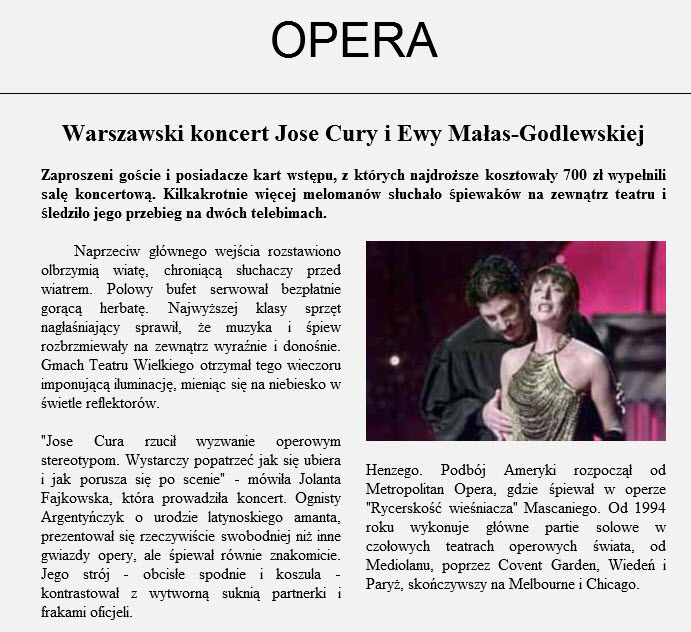 |
|
|
|
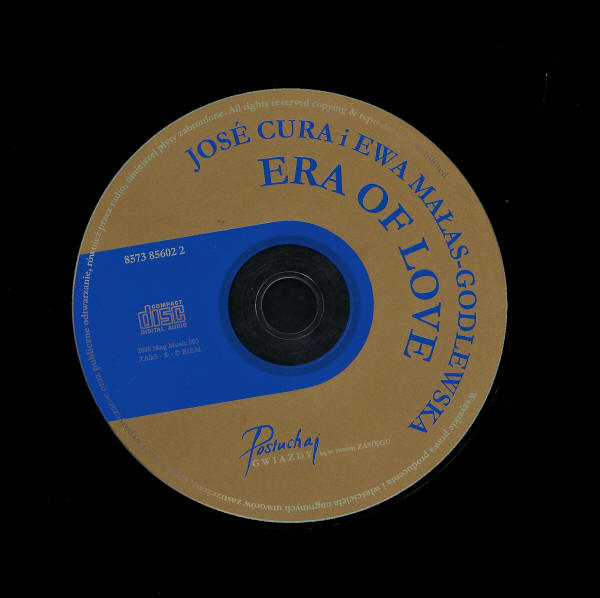
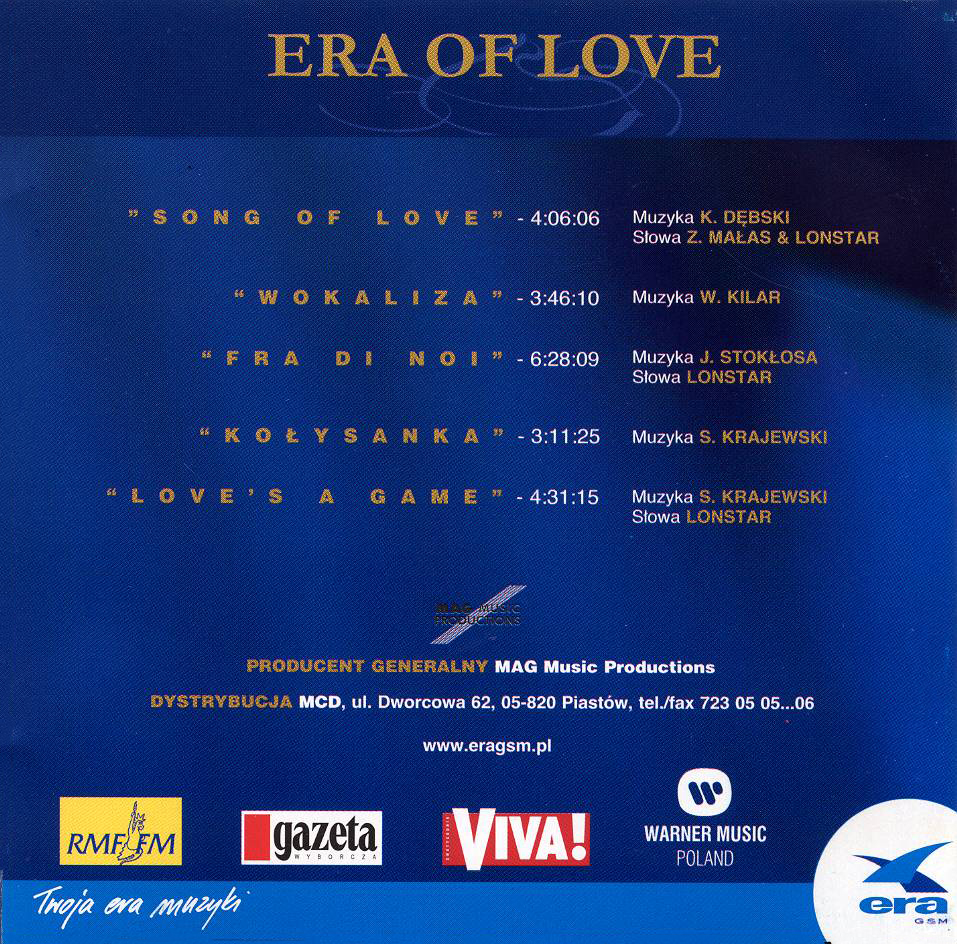
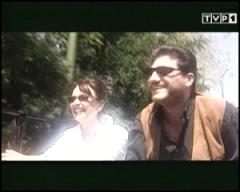
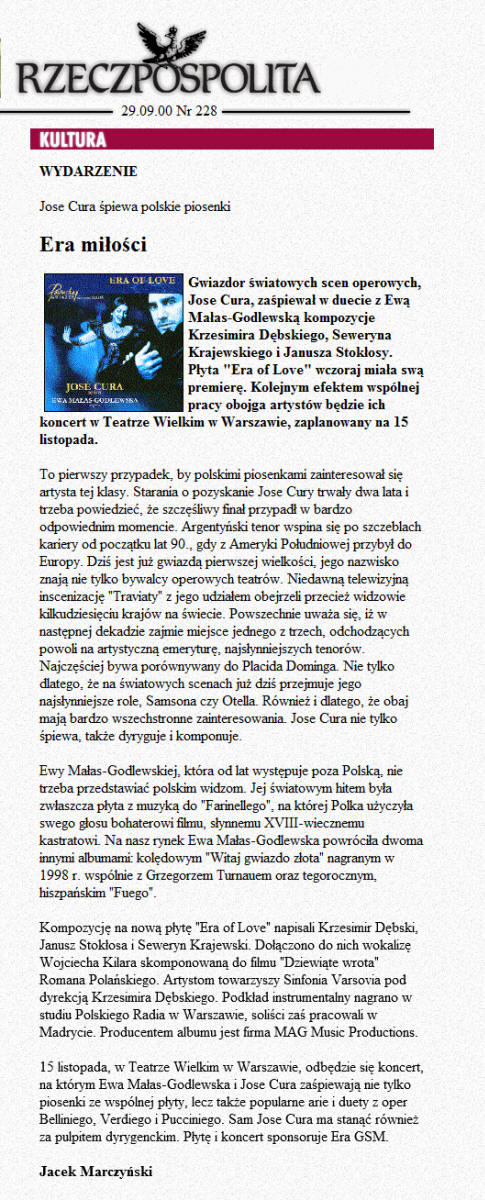
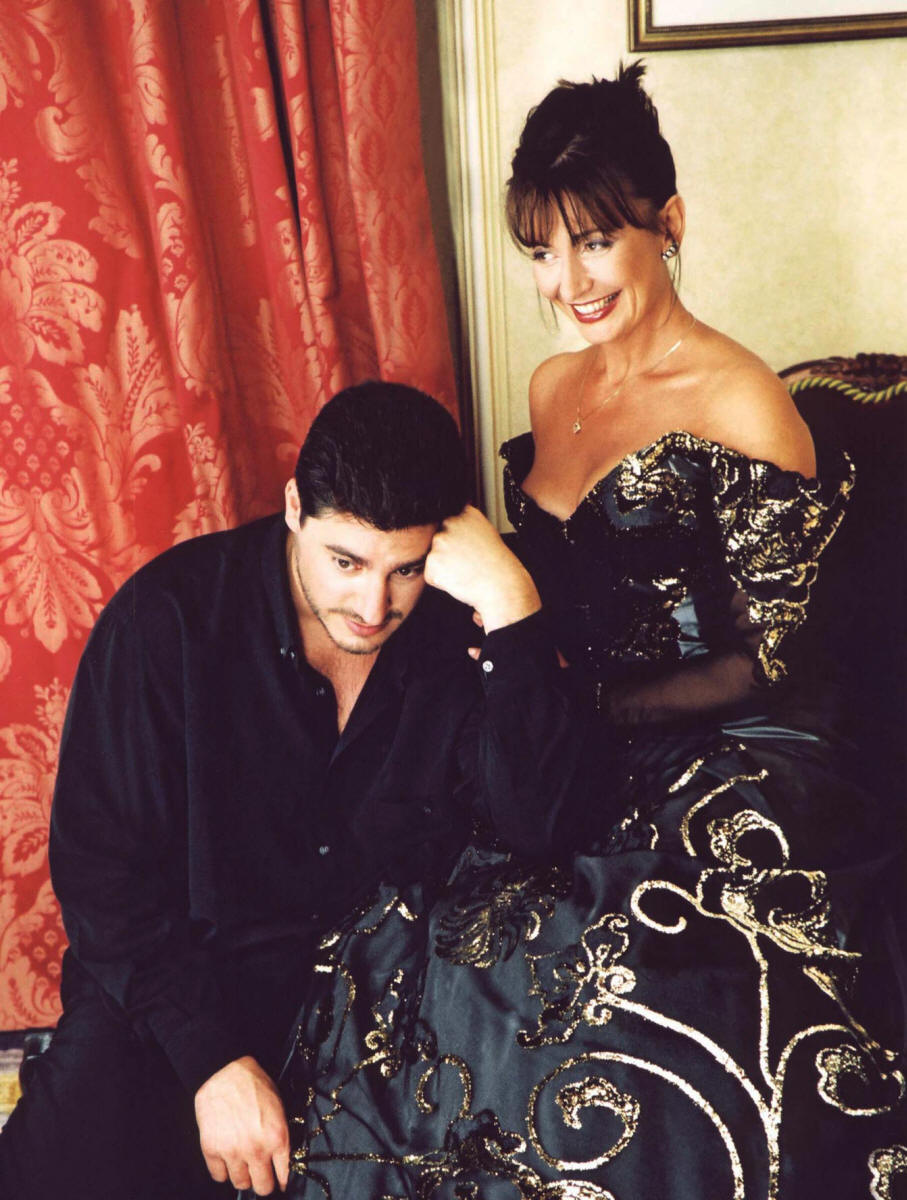
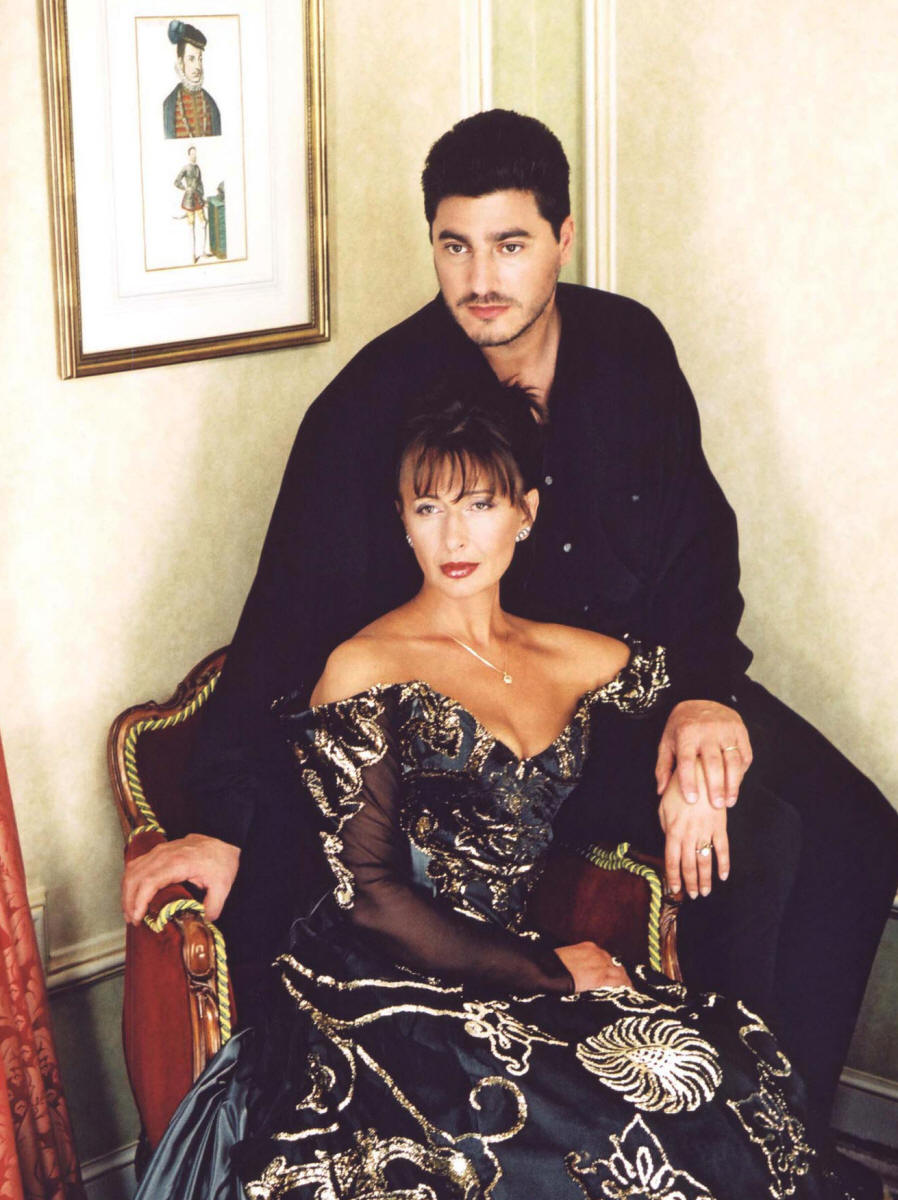
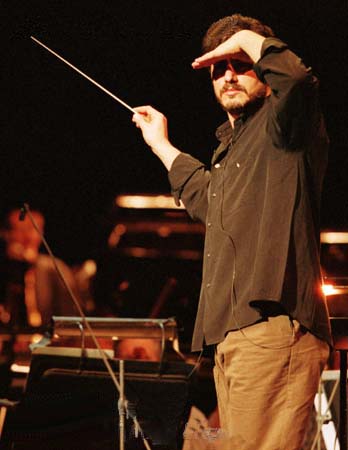
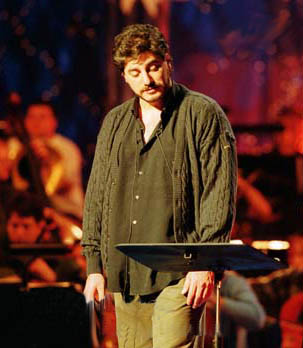
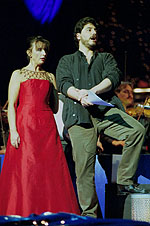
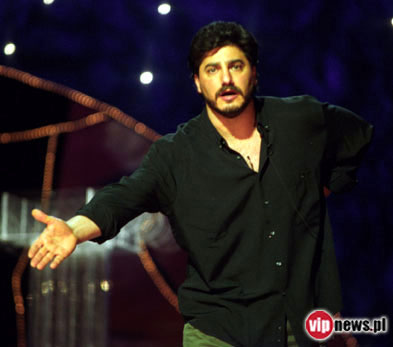
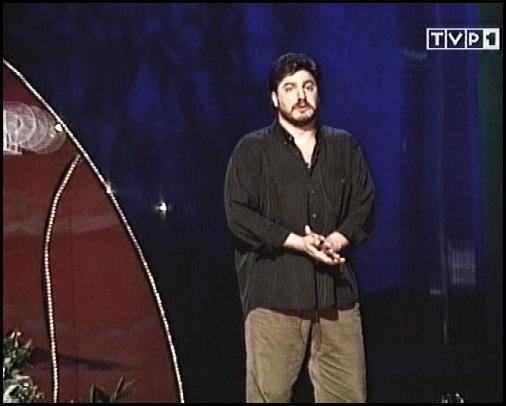
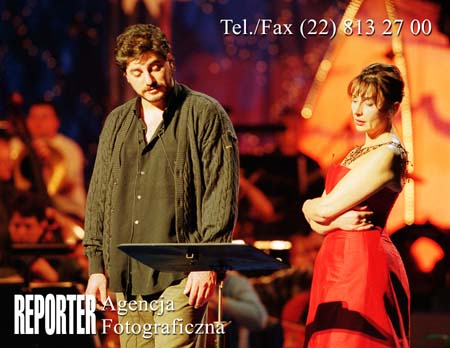
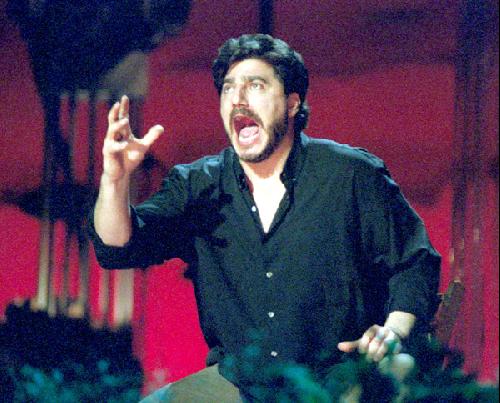
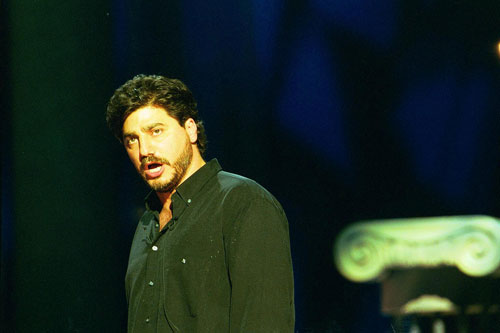
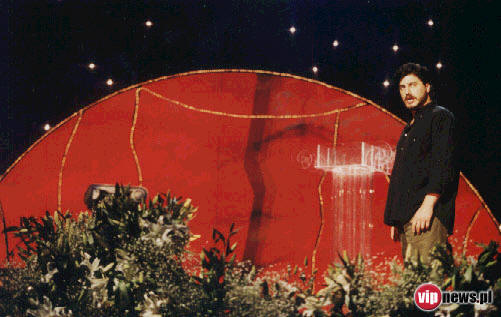
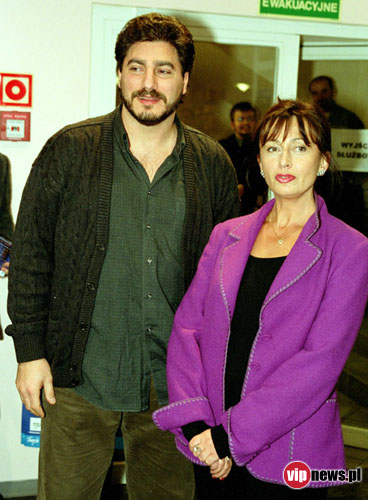
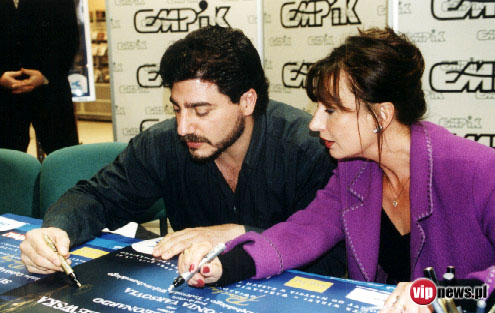
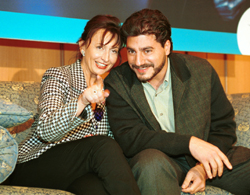
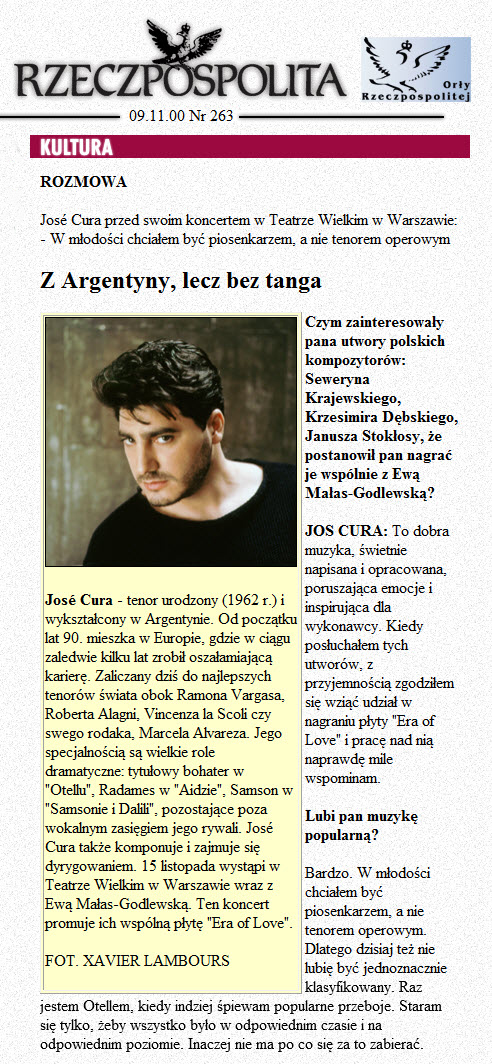
.jpg)
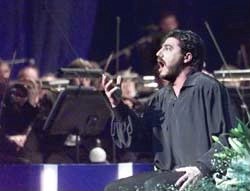
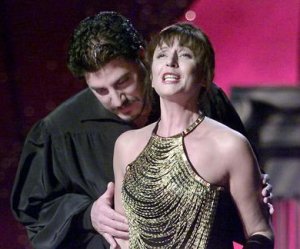
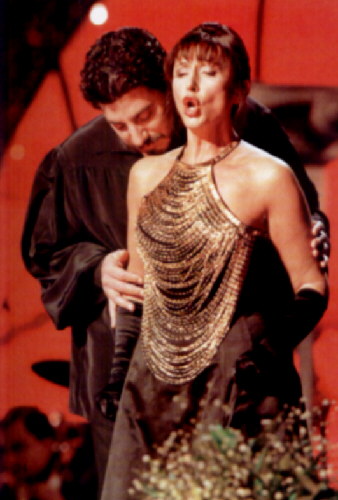
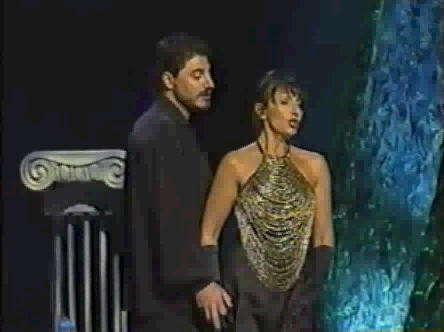
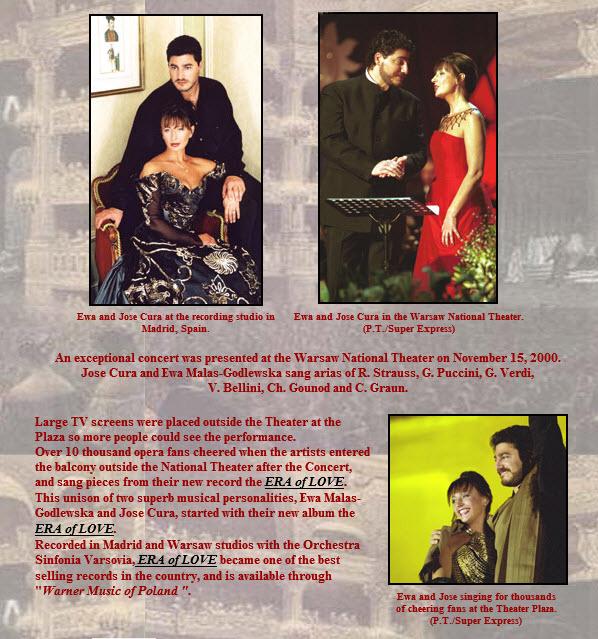
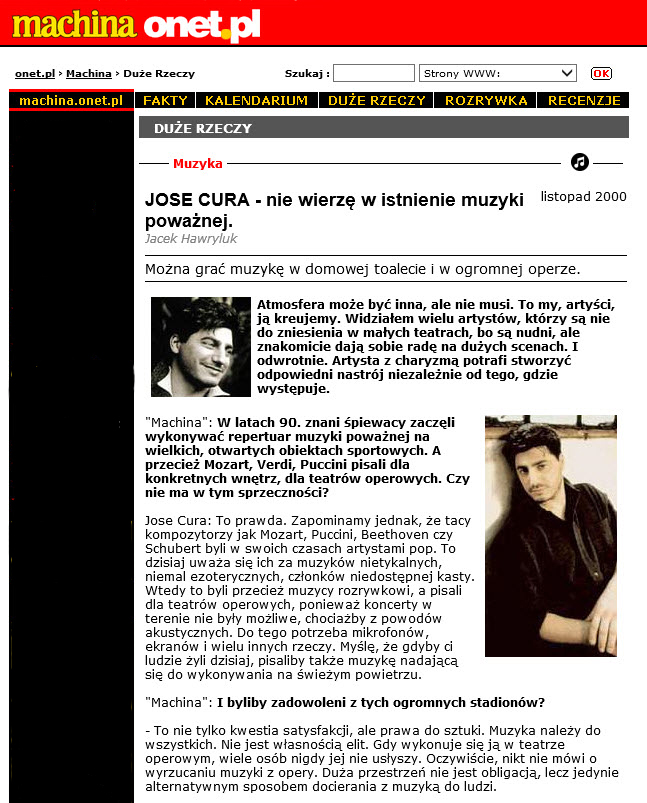

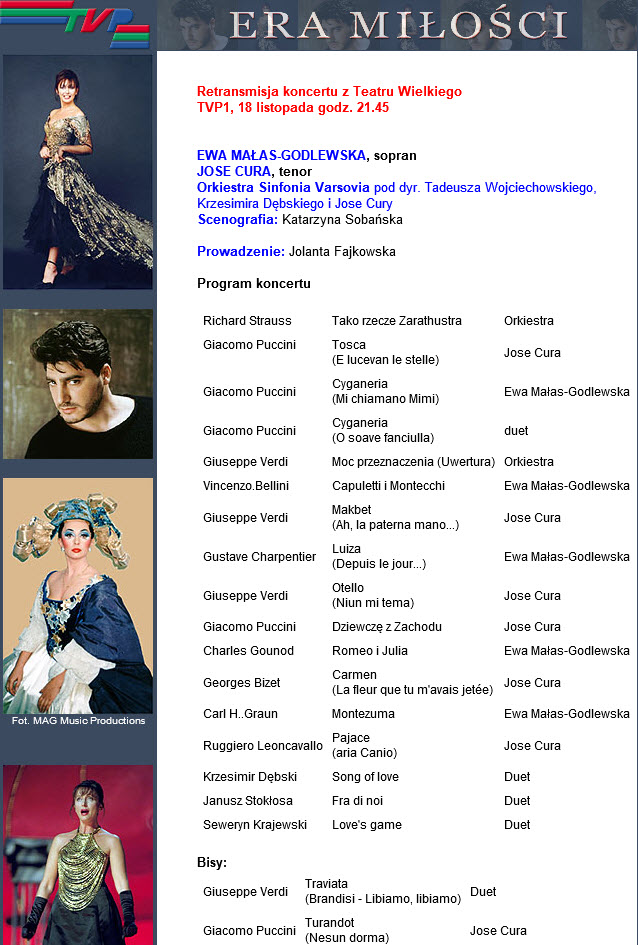
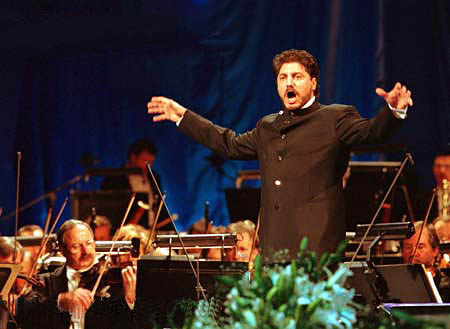
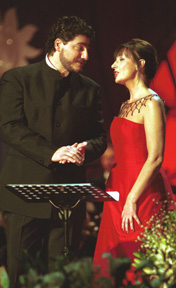
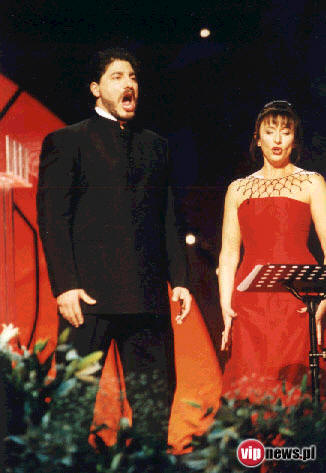
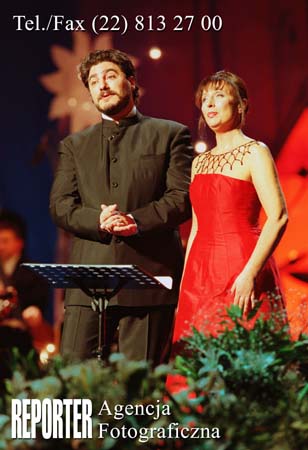
.jpg)
